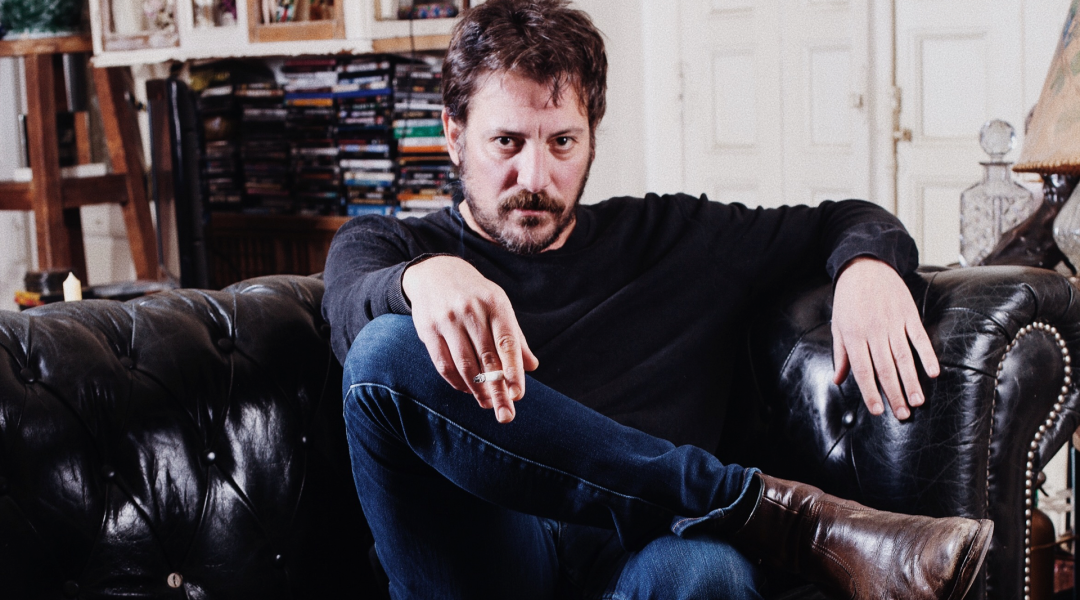Ray Loriga
Amidst Doubt And Guilt

Ray Loriga (Madrid, 1967) has been showing his enormous talent as a writer, screenwriter and film director for more than twenty-five years. He has directed actors such as Viggo Mortensen in 'My Brother’s Gun' and Paz Vega in 'Theresa: The Body of Christ' and written stories that have been adapted to film by Pedro Almodóvar, Carlos Saura, and Daniel Calparsoro.
The literary interests of Ray Loriga, who became an icon of his generation in the 1990s with the books Worst of All and Heroes, cover novels, short stories, children's books, and op-eds. The winner of the 2017 Alfaguara Award for Novel has just published Saturday, Sunday, a novel about doubt, guilt and remorse that, like his best works, is strangely charming.
What themes do you tackle in your new novel that you haven’t tacked before?
Some of my themes are persistent, but in each book you write you find yourself at a different time in your life. This is the first time I confront the vertigo of hearing two voices—myself as a writer and the character himself, or what is the same, the distance between what we thought we were going to become in the future and what we finally turn out to be.
Saturday, Sunday (Editorial Alfaguara) is narrated in two different periods—the strange events occurring in 1988 and the explanation of those events in 2013. There is complete silence during the 25 years in between. Does the passing of time and the circumstances we face change us radically or only superficially?
Time shapes us gradually until we become something different. Almost everyone makes a projection of themselves, of their abilities and personality, when they are young. We dream of a kind evolution that we see as an improvement. With the passing of time you realise that is not always the case—you don’t necessarily improve. Over time, people don’t change, they just get worse.
Are there any dark spots in your literary career, the guilt of "some dark jellyfish" taking your sleep away?
No, there is no nightmare taking my sleep away in my literary career. But in my personal life... I guess we all could have done certain things better.
On the book cover there is a woman. The publishing industry is desperately trying to appeal to female readers. It feels as if it has given up on male readers.
The narrator in Saturday, Sunday is a man. The book is about him. But there are two women that are fundamental to the story—the waitress working at VIPS on Lopez de Hoyos and the narrator’s cousin, who is his alter ego, his friend and confessor. I don’t decide on the covers, but here is a statistical fact—in Spain, 80 percent of readers are women and 20 percent are men. Just go to a book launch and you’ll see that 80 percent of attendees are women. That readers in Spain are mostly women is a fact, so of course they’re the publishers’ target market.
“Literature, like reading, entails loneliness and silence. It's all in your head”
There is a scene in Queen’s biopic Bohemian Rhapsody in which Freddie Mercury leaves the band because he’s tired of the circularity of being in one—you record and release an album, you promote it and you go on a tour. The life of a writer involves the same circularity—you write a book, you launch it, you go on a promotional tour around provincial towns, you sing copies at book fairs… and back to the starting point again.
I haven’t watched the film. I have never really played Queen at home. Writing and promoting a book are opposing jobs. Literature, like reading, entails loneliness and silence. It's all in your head. You don’t have to tell anyone. Promotion involves becoming a sort of a parrot visiting six countries—that depending on your book’s success—and giving interviews, always saying more or less the same things. It’s a bit hard but, on the other hand, you feel fortunate to be able to do it because it could also happen that no one publishes your book or read it or ask anything about it. There is a bittersweet taste to it—introducing yourself so much it’s quite exhausting and has nothing to do with the nature of your work as a writer, but then again you appreciate the fact that you can be there. Going back to Queen, the problem with being a writer is that you can’t split up the band.
It is common to find actors who dream of being writers. It makes you wonder why people seem not to be satisfied with their roles in life. Do you have any other talent you would like to explore?
Honestly, I don’t. I’ve always wanted to be a writer. I’m also a screenwriter and, although I’ve directed films, I’m a screenwriter who happens to sometimes direct films. I’ve always been most passionate about literature and film.
Since childhood?
When I was little I wanted to be a footballer and then a ballet dancer. I took up ballet, but my football coach at school dragged me out by the neck. He said I would set a bad example to the rest of the team because ballet was a queer thing. My career as a dancer was cut short right there. I was really bad at it, though, and I would have achieved nothing, but I’ve never stopped going to ballet shows. I was captain of the school’s football team and I really enjoyed that.
Any projects for a series or a film?
Yes, I’m working on the adaptation of a novel I like very much by Eduardo Iglesias, a writer from San Sebastian. Hopefully, one day I’ll stop promoting books and writing them so I can focus on it and perhaps make it happen. Making films is very complicated.

